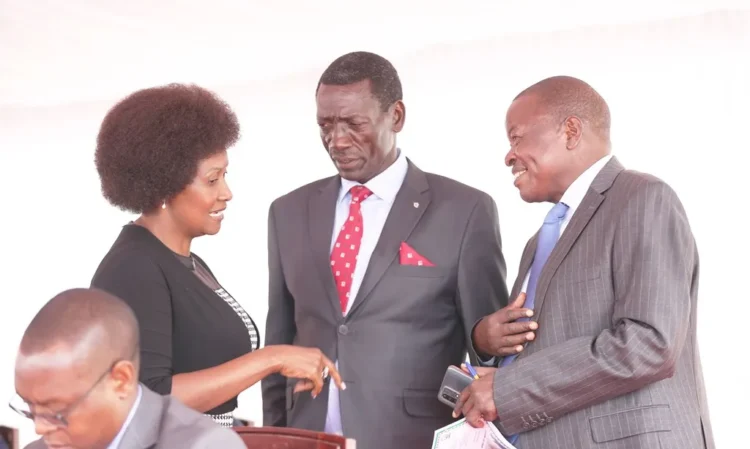Junior School Teachers at the Center of Sh40 Million Monthly Union Fee Dispute.
A fierce contest over union representation has erupted between the Kenya National Union of Teachers (KNUT) and the Kenya Union of Post Primary Education Teachers (KUPPET), with KNUT claiming jurisdiction over 46,000 junior school (JS) teachers. KNUT argues these teachers fall under its domain due to their deployment in primary schools, where they are currently stationed.
KNUT Secretary-General Collins Oyuu maintained that JS teachers should be under KNUT, not KUPPET, because their workstations are in primary institutions. He stated that KNUT would not sit back and allow another union to collect membership fees from teachers who rightfully fall under its jurisdiction.
Oyuu further contended that the Teachers Service Commission (TSC) had acted improperly by facilitating agency fee deductions in favour of KUPPET. He claimed the commission’s actions were intentionally meant to create divisions between the two unions, accusing TSC of harbouring ulterior motives.
According to Oyuu, the structure of the education system recognizes “junior school” and not “junior secondary school” as part of the ongoing reforms guided by the Presidential Working Party on Education. As such, he said, JS teachers belong in the primary section, which KNUT traditionally represents.
He emphasized that union membership is governed by where a teacher’s services are located. He explained that teachers domiciled in primary schools are KNUT members, while those in secondary schools are represented by KUPPET. He reiterated, “If your services are domiciled in primary school, you are a member of KNUT, and if you are in secondary, you belong to KUPPET.”
Legal Dispute Over Union Deductions
The Labour Relations Act supports this position by stating that a union member must sign a membership form. Oyuu pointed out that none of the JS teachers had done so in favour of KUPPET. Despite this, TSC has been deducting Sh859 monthly from the teachers’ salaries as agency fees and remitting the amount to KUPPET since February.
Section 49 of the same law allows for such deductions if a teacher benefits from a Collective Bargaining Agreement (CBA) negotiated by a union, even without direct membership. The financial implications are significant, with more than Sh40 million collected each month from JS teachers now employed on permanent and pensionable terms after two years as interns.
In response, KNUT has strategically created leadership positions specifically for JS teachers at the branch, regional, and national levels to attract them into the union.
KUPPET, however, insists it is the rightful representative of the JS teachers. Acting Secretary-General Moses Nthurima stated that the teachers are already part of their union’s framework. He added, “Even in our leadership order right from the grassroots to the national level, we have slots for the JS teachers.”
Edward Obwocha, KUPPET’s secondary schools secretary, argued that JS teachers are posted to secondary school sections, not primary, despite being stationed in integrated schools. He said, “It has been clear from the onset that the JS teachers are in the secondary school section, but deployed to the integrated schools. By all means, they are KUPPET members.”
Read Also: CUE Calls for More University Research Funds
Leadership Amendments and Court Injunction
KUPPET’s efforts to formally include JS teachers in its structure culminated in a disputed constitutional amendment passed on December 20, 2025. This amendment created a new position — assistant secretary, junior school — in the union’s leadership. However, implementation was put on hold by the Labour Relations Court after members filed an injunction.
Meanwhile, President William Ruto highlighted his administration’s achievements in teacher recruitment. He said that 76,000 teachers have been employed in the past two years and assured the public that more would be hired under permanent and pensionable terms in the 2025–2026 financial year.
Junior School Teachers at the Center of Sh40 Million Monthly Union Fee Dispute.



Discussion about this post